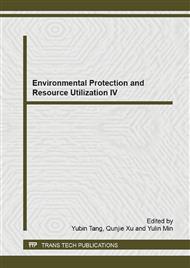p.2282
p.2286
p.2292
p.2296
p.2300
p.2305
p.2310
p.2316
p.2321
Test and Analysis of Heat-Resistant Polymer Solution’s Hydrolysis
Abstract:
This paper research the hydrolysis law of BH heat-resistant polymer in distilled water, oil field clear water and oil field waste water, and inspect its long-term thermal stability in the waste water. The results showed that there is few difference about hydrolysis degree between the ZIIordinary polymer and BH heat-resistant polymer in distilled water. BH heat-resistant polymer will hydrolyze faster in the waste water than in the clear water. The hydrolysis degree of different concentrations of BH of polymer solution under the same temperature increases with the increase of aging time, the higher the polymer concentration, the higher the viscosity of the solution, the smaller the hydrolysis degree. BH heat-resistant polymer hydrolysis under high temperature will increase, caused the increase of hydrolysis degree from 95°C to 120°C. AMPS group of BH heat-resistant polymer will not hydrolyze under 95°C.
Info:
Periodical:
Pages:
2300-2304
Citation:
Online since:
December 2014
Authors:
Price:
Сopyright:
© 2015 Trans Tech Publications Ltd. All Rights Reserved
Share:
Citation:


